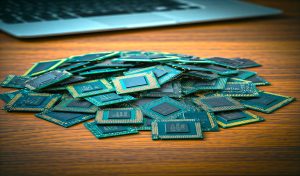Here’s Why Google Should Bid For T-Mobile
Foremski’s Take: The potential acquisition of T-Mobile by AT&T [T] is bad news for Silicon Valley with its strong focus on the consumer: search, social networks, and a spectrum of cloud based services.![]()
The reason is that the distributors of all that wonderful Silicon Valley content and services, from Google, Facebook, Twitter, and a myriad other companies, will have to travel through fewer owners of the distribution networks.
And if those distribution networks fail as a level playing field for all — then innovation in Silicon Valley by both large and small will be drastically curtailed. Startups will have to pay for access to consumers and that will raise costs and the amount of startup capital needed — it’s at an all time low currently.
I’m surprised that Google didn’t make a bid for T-Mobile. Here is why:
– The wireless carriers have a big influence on what features and services they will support in handsets.
– If Google search is a click or two away on a mobile device it will lose huge amounts of traffic.
– T-Mobile has been a key partner for Android and the Google Nexus phone.
– Google supports a level playing field for Internet access.
– Google already owns a lot of the Internet backbone, why not the end points where it really matters?
But there are two more reasons why Google needs T-Mobile:
– customer service.
– the monthly billing relationship already established with consumers.
The reason the Nexus Google phone failed was that Google had no customer support. It believed it could just offer the phone online and automated systems would fulfill orders and billing. That doesn’t work if you are trying to sell stuff to consumers.
T-Mobile has customer service, and by some accounts it is excellent customer service; and that’s in a field where that phrase is considered an oxymoron.![]()
T-Mobile has a billing relationship with consumers, which is very important.
Apple already has a billing relationship with tens of millions of people through its AppStore — providing a frictionless payment system. Google doesn’t.
Letting T-Mobile slip away is a grave mistake by Google. But I can understand why it will happen: culture.
Google’s culture is to use algorithms to solve any problem or provide any service. It’s a wise strategy in the right circumstances because people are more expensive than servers and software.
If you can just use machines rather than people you will have the lowest business costs.
For example, in the small print of Google News at the bottom of the page you will find this statement:
“The selection and placement of stories on this page were determined automatically by a computer program.”
No editors were used. No people were required to make those choices.
This is a key aspect of Google’s culture that many observers fail to understand, especially when they propose a Google acquisition of a newspaper, such as New York Times.
But can Google overcome its legacy machine culture and understand that a front-facing people layer, in the form of great customer support, will be important to its future?
Maybe.
Or maybe Microsoft {MSFT] will realize it first and jump into the T-Mobile bidding? (hat tip @johnobeto)
After all, Microsoft has been marginalized in the mobile space. It recently put together a $1 billion deal with Nokia for its mobile operating systems.
Microsoft needs the support of handset makers but it also needs the support of the Telcos.
AT&T is in the Apple camp, and so will be T-Mobile if the acquisition goes through — further limiting Microsoft’s options.
We might very well see a bidding war for T-Mobile.
[Cross-posted at Silicon Valley Watcher]
A message from John Furrier, co-founder of SiliconANGLE:
Your vote of support is important to us and it helps us keep the content FREE.
One click below supports our mission to provide free, deep, and relevant content.
Join our community on YouTube
Join the community that includes more than 15,000 #CubeAlumni experts, including Amazon.com CEO Andy Jassy, Dell Technologies founder and CEO Michael Dell, Intel CEO Pat Gelsinger, and many more luminaries and experts.
THANK YOU













